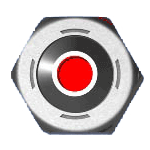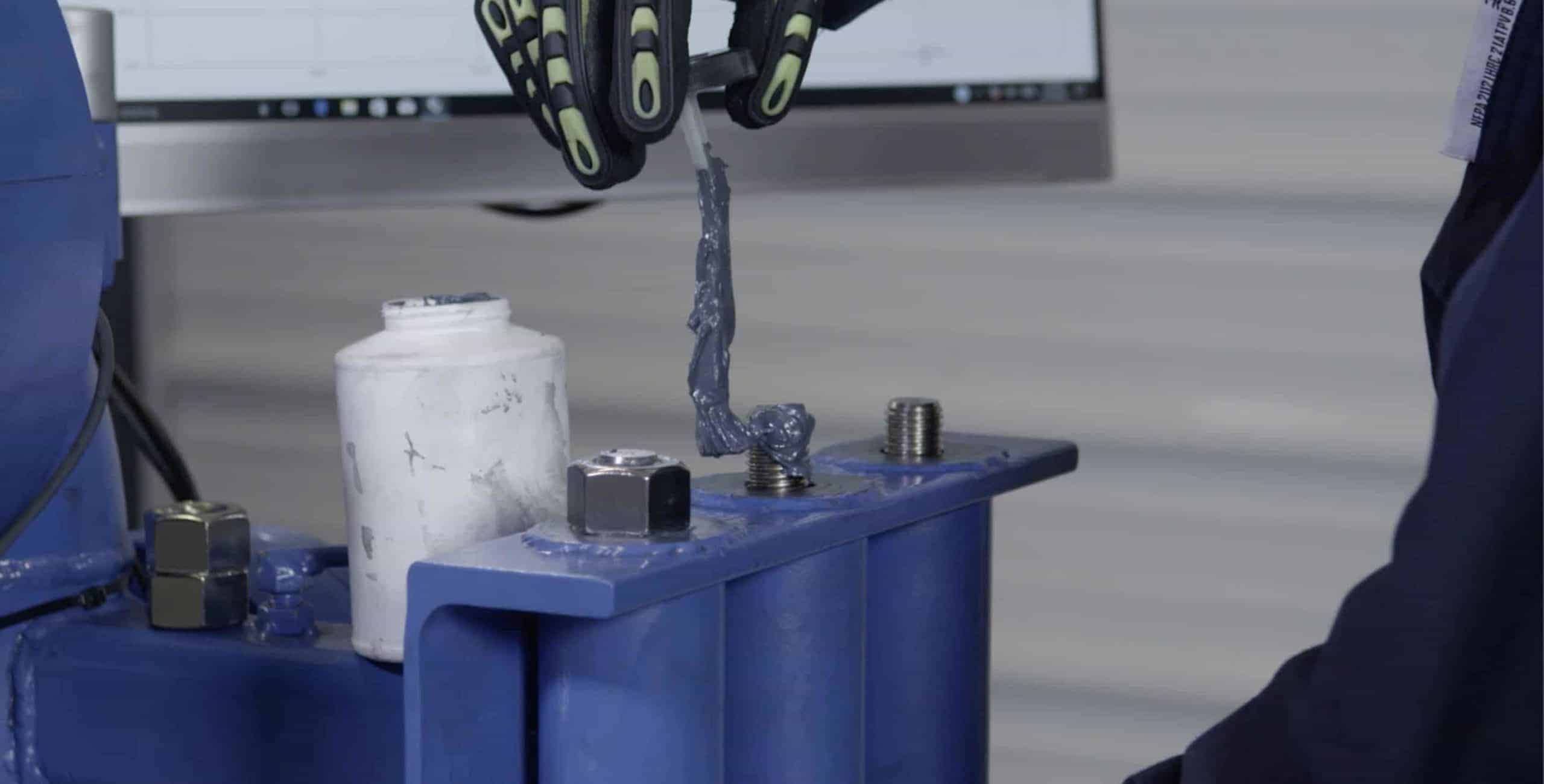I personally use a a small amount of coppercoat anti seize on wheel studs/bolts when installing wheels. I have never had a damaged wheel from one coming loose but have lost studs, nuts, bolts from seized threads that were put on dry. I also check my torque after installing wheels.
Lube on wheel stud/bolt threads.
- Thread starter woodman55
- Start date
Do you adjust the torque setting you use to compensate for the increased pull the nut will exert on the stud, due to the lubrication effect of the anti seize?
Lug nuts are the exception to the rule of using a non seize product to assist in future disassembly. The torque value is for dry threads. The most that I would ever do is to put some grease on the exposed threads once the wheel was mounted to prevent the studs from rusting. I honestly can't ever remember seeing wheel studs rust.
Nope, just the manufactures torque spec with a tiny bit of lube.Do you adjust the torque setting you use to compensate for the increased pull the nut will exert on the stud, due to the lubrication effect of the anti seize?
If you lube and torque with the dry specification you are over torquing the fastener.
A tiny bit doesn't mean anything.
A tiny bit doesn't mean anything.
But there must be some factor that accounts for lubrication, and would result in the same pull on the stud, with less torque applied to the nut right?If you lube and torque with the dry specification you are over torquing the fastener.
A tiny bit doesn't mean anything.
Is such a factor not common knowledge for those with mechanical knowledge?
Seems like it should be available if one is smart enough to find it, which I am not...
0
Dan
Consult the manufacturers data sheet - they usually speak to this issue. The K factor for antisieze is typically .10/.13. Compare that to .15 for oiled threads and .20 for dry. That translates into reducing torque values to around 80% to 85% of dry when using antisieze products.But there must be some factor that accounts for lubrication, and would result in the same pull on the stud, with less torque applied to the nut right?
Is such a factor not common knowledge for those with mechanical knowledge?
Seems like it should be available if one is smart enough to find it, which I am not...
Dan
That seems reasonable and common sense really...especially since torgue required is specified in a range anyway. Thanks...0
Consult the manufacturers data sheet - they usually speak to this issue. The K factor for antisieze is typically .10/.13. Compare that to .15 for oiled threads and .20 for dry. That translates into reducing torque values to around 80% to 85% of dry when using antisieze products.
Dan
Lube them up, torque to 80% of max dry value and feel good about it I guess.
Its common sense if you understand what you are doing when you torque a fastener. Shigley's Mechanical Engineering Design devotes a chapter to the physics and mathematics of fastener torque.That seems reasonable and common sense really...especially since torgue required is specified in a range anyway. Thanks...
Lube them up, torque to 80% of max dry value and feel good about it I guess.
Dan
Pau7220
Well-known member
Equipment
L3650 GST, Landpride TL250 FEL w/ Piranha, 6' King Kutter, GM1084R Finish
Been doing that on all my vehicles and all of my customers vehicles for a half century without one single loose, stripped, galled, or seized stud or nut. Don’t get me started on what I’ve received from other shops… ButchersThat translates into reducing torque values to around 80% to 85% of dry when using antisieze products.
P.S. Don’t forget the brush hog blade boltsLug nuts are the exception to the rule of using a non seize product to assist in future disassembly.
Last edited:
torch
Well-known member
Equipment
B7100HSD, B2789, B2550, B4672, 48" cultivator, homemade FEL and Cab
I live where they salt roads and have seen wheel studs rust. I use anti-seize but derate the torque by 5%.
fried1765
Well-known member
Equipment
Kubota L48 TLB, Ford 1920 FEL, Ford 8N, SCAG Liberty Z, Gravely Pro.
Yup.......rust from road salt, and from near the ocean too!I live where they salt roads and have seen wheel studs rust. I use anti-seize but derate the torque by 5%.
Last edited:
whitetiger
Moderator
Staff member
Equipment
Kubota tech..BX2370, RCK60, B7100HST, RTV900 w plow, Ford 1100 FWA
Rusted wheel bolts and nuts are very common. Landscape companies that do chemical applications, ice melt salt, fertilizer plants, wastewater treatment facilities, chemical production plants, feedlots, the list goes on and on.Yup.......rust from road salt, and from near the ocean too!
This is an interesting topic indeed.
I've always added anti-seize to bolts - especially lug bolts.
Certainly those who've done engine work know about certain engines requiring lube on the head bolts.
I found a few things I thought would interest ya'll and maybe provide some discussion.
Smartbolts: Anyone ever heard of these?

 www.smartbolts.com
www.smartbolts.com
This is fact-filled-fun paper from NASA on the subject (download it).
I'm no rocket scientist, but for those of you that are, wouldn't different thread types affect this kind of thing too?
Take NPT and NPTF fittings for example and the way that the threads mate to form a seal. I have gotten properly confused lately reading about hydraulic lines and fittings JIC, pipe, etc. as I rebuild my tractor. Fascinating, but as we know - sometimes you have to separate fact from opinion.
Bolts (threads) to hold things together and pipe threads (to both hold together and seal out fluids) must have some common relationship with torque and tension and lubrication.
Another article takes into consideration different types of lubrication.
 www.pumpsandsystems.com
www.pumpsandsystems.com
Man, a guy could get lost in all of this eh?
Is there a rule of thumb or something? There's a video in this one demonstrating "real world" lubrication I thought was likely true.

 www.hextechnology.com
www.hextechnology.com
I've always added anti-seize to bolts - especially lug bolts.
Certainly those who've done engine work know about certain engines requiring lube on the head bolts.
I found a few things I thought would interest ya'll and maybe provide some discussion.
Smartbolts: Anyone ever heard of these?

SmartBolts - SmartBolts
SmartBolts Overview Tech Specs FAQ Download Complete Catalog Here SmartBoltsKnow at a Glance it’s Tight SmartBolts are tension indicating fasteners that offer real-time visual indication of bolt preload. A visual indicator simplifies the installation and inspection process. When you know at a...
This is fact-filled-fun paper from NASA on the subject (download it).
I'm no rocket scientist, but for those of you that are, wouldn't different thread types affect this kind of thing too?
Take NPT and NPTF fittings for example and the way that the threads mate to form a seal. I have gotten properly confused lately reading about hydraulic lines and fittings JIC, pipe, etc. as I rebuild my tractor. Fascinating, but as we know - sometimes you have to separate fact from opinion.
Bolts (threads) to hold things together and pipe threads (to both hold together and seal out fluids) must have some common relationship with torque and tension and lubrication.
Another article takes into consideration different types of lubrication.
The Importance of Using Thread Lubricants in Bolted Connections
In any industrial plant, there can be thousands of bolted connections, primarily in the flanged connections throughout piping systems, on packed stuffing boxes on pumps and valves, and on heat exchanger covers, for example.
Man, a guy could get lost in all of this eh?
Is there a rule of thumb or something? There's a video in this one demonstrating "real world" lubrication I thought was likely true.

Bolt Lubricant and Torque: A Comprehensive Guide - Hex Technology
Bolt lubricant plays an important role during both the assembly and disassembly of a joint. Learn proper lubrication techniques and how they affect torque
Last edited:
Thanks for that Nicksacco.
I really like the smart bolts!
I am going to try to read the NASA report.
Later
I really like the smart bolts!
I am going to try to read the NASA report.
Later
I live where they salt roads and have seen wheel studs rust. I use anti-seize but derate the torque by 5%.
The proper way to assemble tapered pipe threads is by counting turns. Your goal is to establish a seal not a fastener tension.This is an interesting topic indeed.
I've always added anti-seize to bolts - especially lug bolts.
Certainly those who've done engine work know about certain engines requiring lube on the head bolts.
I found a few things I thought would interest ya'll and maybe provide some discussion.
Smartbolts: Anyone ever heard of these?

SmartBolts - SmartBolts
SmartBolts Overview Tech Specs FAQ Download Complete Catalog Here SmartBoltsKnow at a Glance it’s Tight SmartBolts are tension indicating fasteners that offer real-time visual indication of bolt preload. A visual indicator simplifies the installation and inspection process. When you know at a...www.smartbolts.com
This is fact-filled-fun paper from NASA on the subject (download it).
I'm no rocket scientist, but for those of you that are, wouldn't different thread types affect this kind of thing too?
Take NPT and NPTF fittings for example and the way that the threads mate to form a seal. I have gotten properly confused lately reading about hydraulic lines and fittings JIC, pipe, etc. as I rebuild my tractor. Fascinating, but as wep] know - sometimes you have to separate fact from opinion.
Bolts (threads) to hold things together and pipe threads (to both hold together and seal out fluids) must have some common relationship with torque and tension and lubrication.
Another article takes into consideration different types of lubrication.
The Importance of Using Thread Lubricants in Bolted Connections
In any industrial plant, there can be thousands of bolted connections, primarily in the flanged connections throughout piping systems, on packed stuffing boxes on pumps and valves, and on heat exchanger covers, for example.www.pumpsandsystems.com
Man, a guy could get lost in all of this eh?
Is there a rule of thumb or something? There's a video in this one demonstrating "real world" lubrication I thought was likely true.

Bolt Lubricant and Torque: A Comprehensive Guide - Hex Technology
Bolt lubricant plays an important role during both the assembly and disassembly of a joint. Learn proper lubrication techniques and how they affect torquewww.hextechnology.com
Variations in friction make using tightening torque is as an indirect measurement of clamping tension an imprecise process. There are more accurate methods, most notably measuring fastener stretch, but they are more complicated and require time consuming setups and expensive instruments. Torque to yield and tension indicating fasteners are another alternative but they are similarly expensive. So measuring tightening torque remains the most commonly used method of preloading threaded fasteners.
In most common applications the desired fastener preload is 80% of fastener proof strength. This allows for variations in actual material strength and measurement inaccuracies.
The actual torque calculations include a term called the "K" factor which approximates the loss of tension attributable to sliding coefficient of friction in the assembly. Lubricating or plating threads changes the coefficient of friction significantly and consequently the value of the K factor used to calculate the torque needed to produce the desired tension.
T = (K D P)/12
- T = Torque (ft-lbs)
- D = Nominal Diameter (inches)
- P = Desired Clamp Load Tension (lbs)
- K = Torque Coefficient (dimensionless)
If you want a simple rule of thumb its easy - look it up in a table. If the torque value you have been given is for dry threads you must reduce it if the threads are plated or lubricated. There are commonly accepted vales for the K factor to use. Published K factors are determined by experimental testing - e.g. repeated measurements of torque and the resulting tension are made and the K factor is calculated from those results.
If you don't reduce torque you risk stretching the fastener past the point of plasticity which will permanently deform it or even break it. Deforming the fastener results in a loss of clamping force and a weakened fastener.
Thats all engineering fact - not opinion or myth. As I said in my previous post if you want to see the engineering mathematics of it truck on down to your local library and check out a copy of Shigley's.
Dan
Last edited:
TOH...
any idea why them 'engineers' designed all submerssable pump to UNDO the pipe connection?
any idea why them 'engineers' designed all submerssable pump to UNDO the pipe connection?
No.TOH...
any idea why them 'engineers' designed all submerssable pump to UNDO the pipe connection?
Typical gov’t exercise of “measure it with a micrometer, mark it with a grease pencil, cut it with a hatchet”.
All that documentation and detail, …time, money, man-power and resources …running a technical experiment…. which results in completely USELESS data…because they FAILED to even specify the lubricant used.
All that documentation and detail, …time, money, man-power and resources …running a technical experiment…. which results in completely USELESS data…because they FAILED to even specify the lubricant used.
So, are you putting the neversieze on the threads, or on the taper where the nut seats in the rim, or in the case of lo-boy rims, on the flat that meets the clamp? I just put some new clamps on a low-boy installation, and the difference in number of turns between old unplated and new plated clamps was astounding.

